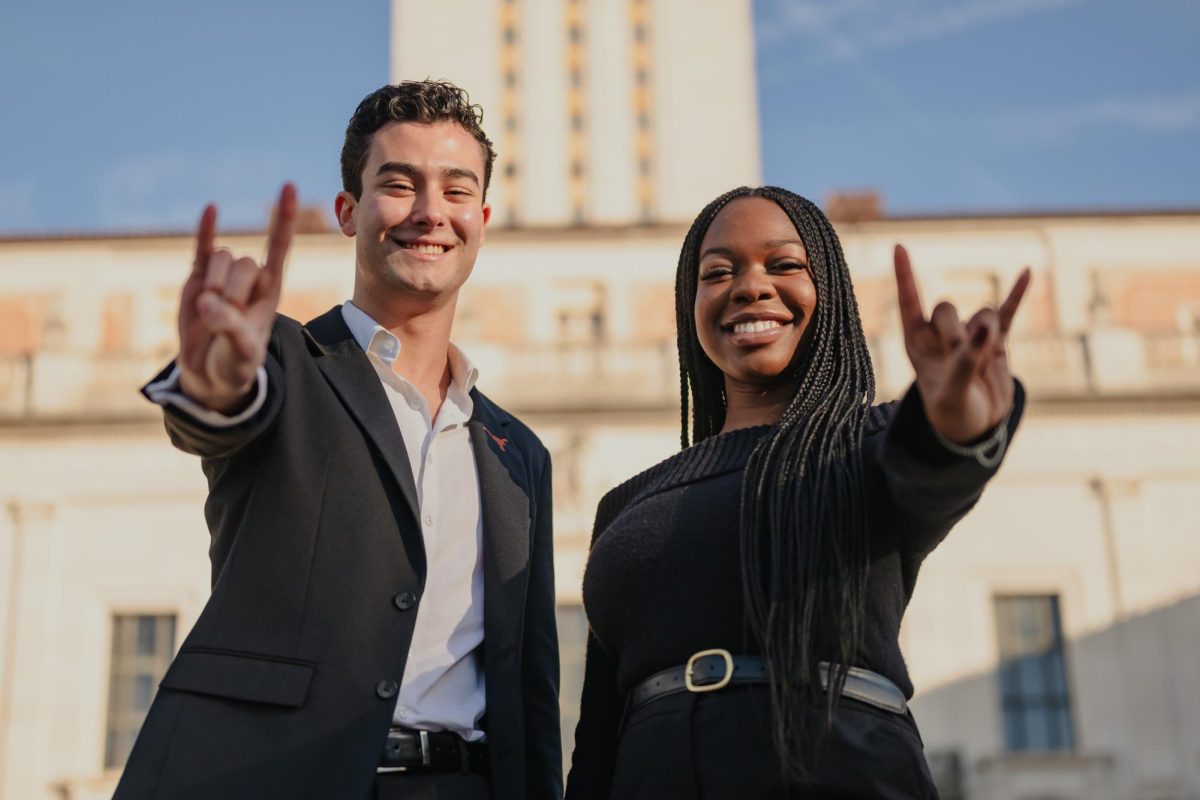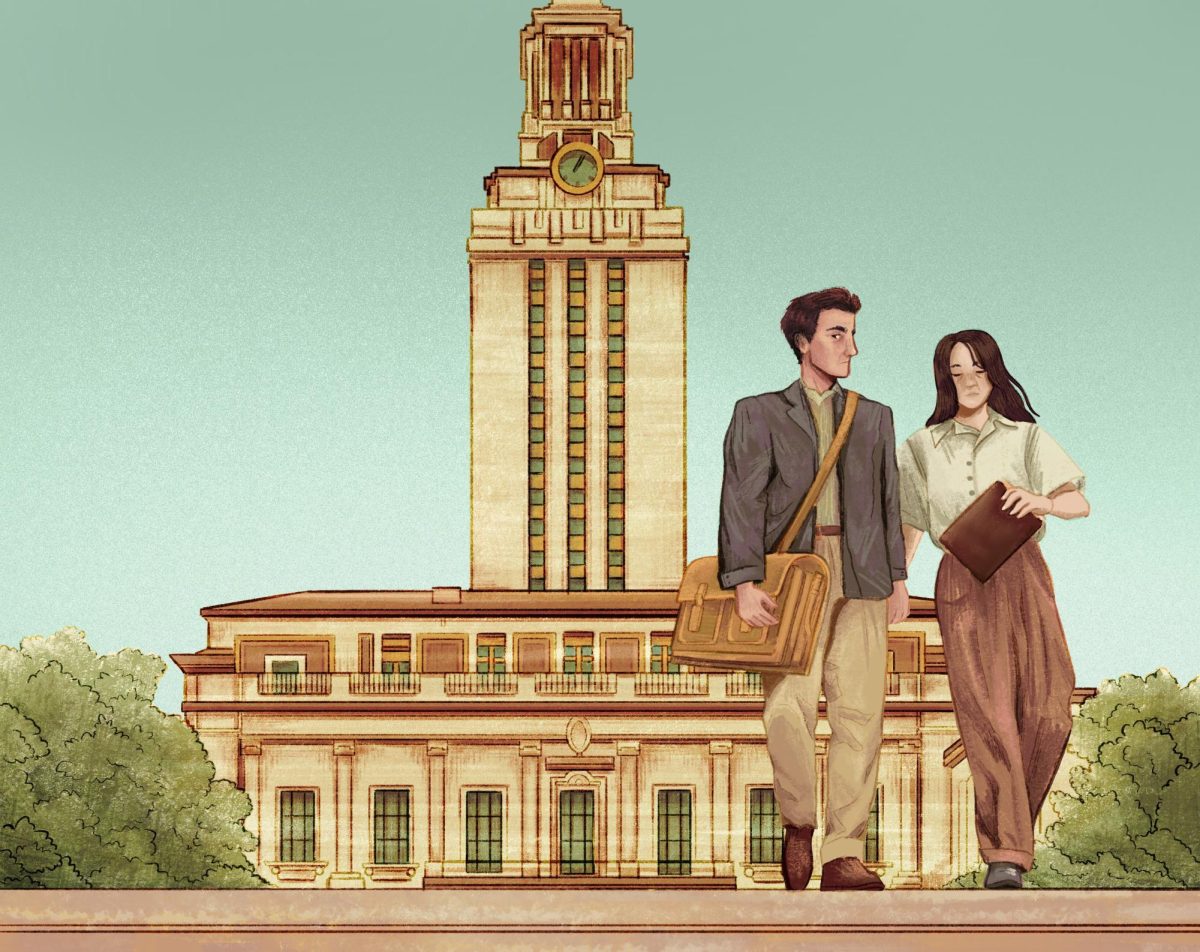Update: Since this editorial was published, charges against all fifty-seven protestors have been dropped.
A pro-Palestinian demonstration spiraled into an aggressive standoff between protesters and law enforcement on Wednesday. The Palestine Solidarity Committee’s demonstration was a call to divest from Israeli financial interests.
The University may have been afraid of what would come of the protests, but their actions only increased tension and drove the event to its unnecessarily violent and damaging end.
Fifty-seven protesters were arrested and booked into Travis County Jail. All charges against protestors were dropped due to lack of probable cause, according to Travis County.
These unnecessary arrests affirm what much of the campus community has pointed out for months: the University and Gov. Greg Abbott intentionally utilize intimidation tactics to avoid controversial discourse on campus.
On Tuesday, the University sent a letter to the PSC ordering that the group cancel the demonstration.
At the University’s request and under the direction of Gov. Abbott, Austin Police Department officers, Texas Department of Public Safety Troopers and UTPD officers arrived on campus. The mass deployment of armed law enforcement officers, including mounted patrol and officers equipped with riot gear, seems like a deliberate attempt to send a message of intimidation.
“The University’s decision to not allow yesterday’s event to go as planned was made because we had credible indications that the event’s organizers, whether national or local, were trying to follow the pattern we see elsewhere, using the apparatus of free speech and expression to severely disrupt a campus for a long period,” Hartzell said in an emailed statement on Thursday.
According to PSC’s online schedule, organizers planned a peaceful event with study breaks, teach-ins, guest speakers and an art workshop on the lawn. It’s difficult to believe that such activities could be construed as threatening.
Early Thursday’s demonstration proved a peaceful atmosphere was always possible.
“I am grateful that everyone is safe after yesterday, we continue to hold in-person classes and that today’s events followed our long-standing campus standards for allowed demonstrations,” Hartzell said.
With minimal law enforcement on the second day, it’s apparent what drove the escalation in the first place — threatening police presence.
In compliance with Senate Bill 18, UT must designate the outdoor spaces as traditional public forums and allow individuals to engage in expressive activities in these areas freely, provided their behavior is lawful and does not substantially disrupt the institution’s operations.
The First Amendment has limitations, and there is no denying that the protestors disregarded the cancellation notice and orders to disperse. However, there is no justifiable reason why students should feel physically threatened.
Hartzell said in an email statement: “We were prepared, with the necessary support to maintain campus operations and ensure the safety, well-being and learning environment for our more than 50,000 students.” Necessary support is an overstatement. Wednesday’s events only heightened the fear and anger of those on campus, creating a dangerous environment for everyone involved.
The University has oscillated between silence and intense overreaction this school year. Between unnecessarily firing 60+ staff members who had already been transferred to non-DEI roles and dissolving the Monarch program, the University appears paranoid of conservative political response.
UT’s response to the demonstration exposes a concerning trend of selective approval.
Despite rhetoric about fostering diverse perspectives through events like Freedom of Speech Week or initiatives like the conservative Civitas Institute, it is evident that dissenting voices are not genuinely welcome when they challenge the dominant narrative.
Following the events on campus, Gov. Abbott wrote in a post on X, “These protesters belong in jail. Antisemitism will not be tolerated in Texas. Period. Students joining in hate-filled, antisemitic protests at any public college or university in Texas should be expelled.”
The only thing Abbott is right about is that anti-semitism has absolutely no place on our campus. But neither does the suppression of non-violent student activism.
UT has failed in its treatment of its students by continuously bending to conservative politicians. It appears UT is afraid of open dialogue that challenges what it has historically benefitted from. That must change.
This editorial was written by current editor-in-chief Lucero Ponce and incoming editor-in-chief McKenzie Henningsen.




















